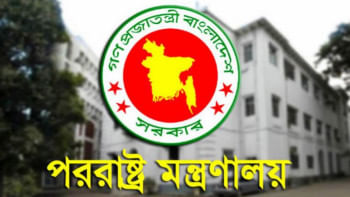The crisis of undocumented Rohingyas

Bangladesh has adopted a 'National Strategy on Myanmar Refugees and Undocumented Myanmar Nationals' in 2013. This kind of policy approach to deal with a less-attended section of people, who need a legal status for enjoying basic protection, is not a plausible solution to the problem. In order to understand the case, one should believe that a country may face a number of non-traditional security challenges if human rights issues of the concerned country are not addressed properly.
Bangladesh is a home of some 300,000-500,000 undocumented Rohingyas. They live in squalid and dangerous conditions at Leda Site, on the banks of a tidal river in Teknaf and in various villages and towns in proximity to the refugee camps in Cox's Bazar. UNHCR has reported that they are frequent victims of sexual and gender based violence such as domestic abuse and rape from both inside and outside of their community.
The prevailing human rights conditions among the undocumented Rohingya community pose a number of security challenges to Bangladesh. It encourages human trafficking, smuggling and other forms of irregular migratory movement to and from Bangladesh. The present situations have forced them to migrate to elsewhere through irregular channels. In this way, many of them have become the easy prey of human trafficking. Once the Rohingyas are started being trafficked, it becomes a venture of massive profit to make for the traffickers. The number of Bangladeshi victims of human trafficking is no significantly lower than that of the Rohingyas.
The challenges have created conditions for policy interventions and Bangladesh has too adopted the aforementioned policy. In this context, the Bangladesh government does not want to register the undocumented Rohingyas as refugees so as not to create a pull-factor generating a further influx to an already over populated country. The same perception has barred Bangladesh not only from formulating a national refugee law, but also from signing the 1951 Refugee Convention and its 1967 Protocol. Bangladesh identifies the undocumented Rohingyas as 'undocumented Myanmar nationals' under the adopted strategy. No doubt that this policy step shows Bangladesh government's interest to address the issue. However, since the 2013 Strategy does not provide any legal status to the 'undocumented Myanmar nationals' as either refugees or migrants, the given recognition does not leave much room for availing legal protection.
Until or unless the undocumented Rohingyas are being registered or documented either as migrants or as refugees, they legally exist nowhere. As a result, the Constitution of the People's Republic of Bangladesh and all associated legal instruments including frameworks, strategies, compacts and policies cannot provide protection to these ill-fated people. Although the Constitution guarantees fundamental rights, not only for its own citizens, but also for anyone living in its territory, it basically says so for the people who already have some sort of legal status. Furthermore, the UNHCR has reported that when the undocumented Rohingyas need to approach the police or other members of law enforcement agencies for legal protection, they risk being jailed for at least five years under the Foreigners' Act, 1946 on the criminal charge of illegal entrance into Bangladesh.
In order to bring a durable solution to the Rohingya problem and to better address the non-traditional security challenges posed by the irregular migratory movements to and from Bangladesh, the government should make necessary changes to its 2013 Strategy by giving the undocumented Rohingyas a specific status as either refugees or migrants under relevant international law.
The writer is a Researcher of Political Science, University of Dhaka.


 For all latest news, follow The Daily Star's Google News channel.
For all latest news, follow The Daily Star's Google News channel. 



Comments